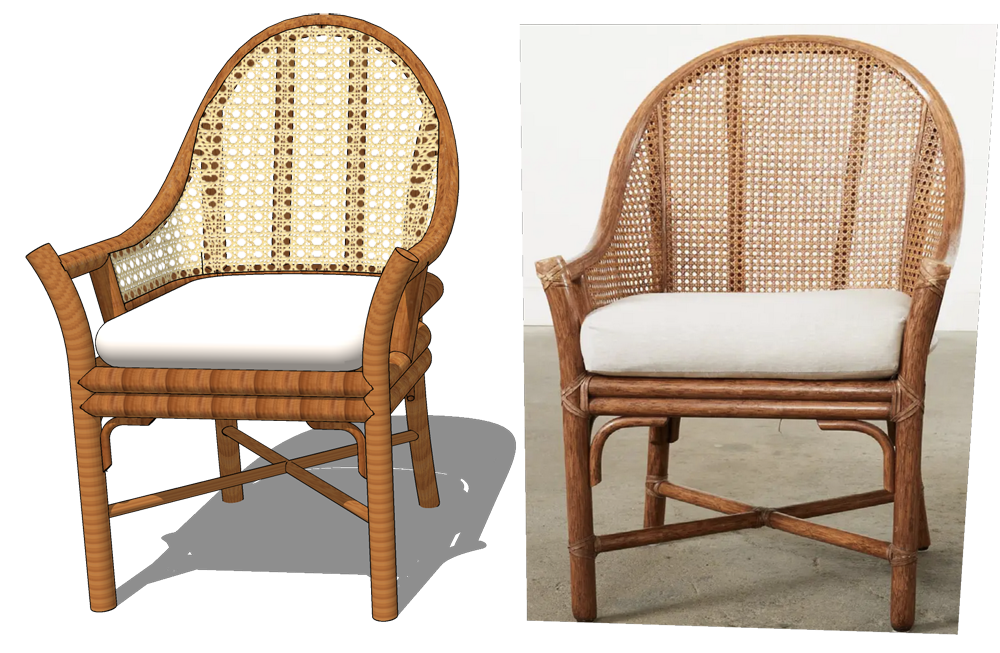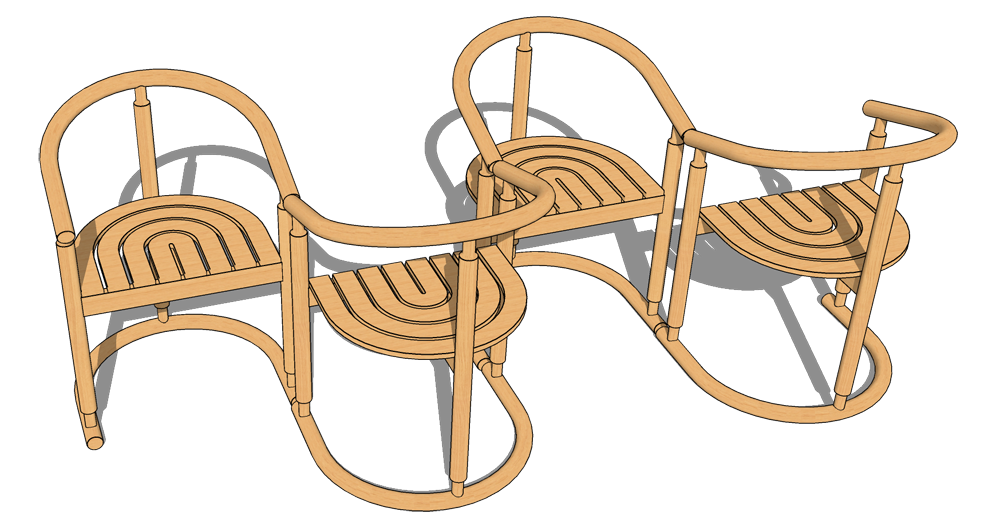Wicker chair finished
-

Finished the chair model just now. And, yes, Tuna, I used a projected texture for the caning on the back. Had to do it in three sections to avoid having the texture go all distorted around the bends. Used BoolTools 2 to join the pieces together. In a perverse way, I like modeling this kind of furniture—begin with a few basic dimensions, then wing it for sizes and shapes.
Enjoy. -
Nice!


-
Thanks, ntxdave.
-
Sweeeet!
-
Super job.
-
 Thanks, all.
Thanks, all.
Andn here's a little bit of dessert I enjoyed after the main course of that wicker chair. It's a set of four Allmilmo dining chairs, made in Germany in the 1980s. The originals are ash. The design is very similar to a child's chair that Ikea sold in the 1960s.
Enjoy. -
Me likey!




-
That is awesome, but... just needs the finishing touch.
May I suggest:
-
Please help me to understand how to draw things like these chairs. How do you draw curved lines at different elevations?
I can understand drawing a curved line as long as it stays in a given plane but when it involves multiple planes my mind gets a little stuck.
-
I watched a video and I think I understand what to go
 Now I have to off ans do some practicing.
Now I have to off ans do some practicing. 
-
Another silly question, do you have drawings you use for things like this? If so, where do you find/get them?
-
My apologies to ntxdave for not answering his questions for weeks. Here goes, in no particular order.
Most of my models are based on images from the 1stdibs.com web site. It's a super resource for new and period furniture. All I need are good front and side views. I'll import the images to SketchUp and use the tape measure in conjunction with option/control to scale the images. Then I trace over important parts. In many cases, though, there isn't a clear image of a part, so I'll wing it.
There are a couple of ways to model curves that don't fall on the red/green/blue axes. The simplest way is to model a curved piece on-axis, make it a component, then rotate the component to the angle seen in the image I'm following.
Next-easiest is to use a Fredo6 plugin, Loft Along Path. Here, you generate a curve and space outlines of a piece along the path. When it works, it's wonderful. But it can generate some ridiculous and unexpected results. I did use the plug-in successfully to model the back/arms of Hans Wegner's iconic The Chair. In real life, the back/arms are made from three pieces that are basically hand-carved. In SketchUp, it is possible to model a piece that twists from vertical to horizontal as it follows a curved path.
Finally, use a bezier curve plug-in and follow Dave Richards's instructions. On that wicker chair, create an L-shaped frame representing half the width and the full depth of the chair. Anchor the ends of the bezier curve at the front of the L (the front of the arm) and the other end at the top (the height of the back). Pull the control point on the curve until it hits a corner parallel to the height of the back. Dave R. can explain it better and more succinctly. In any event, the curve becomes a path for Follow Me. Works great for Thonet bentwood chairs, too. -
Thanks a bunch for the reply. I just need to use my imagination some and give it a try. Have not had my laptop on for a while and probably won’t for a while longer. At some point, I will give it a try.

Advertisement







